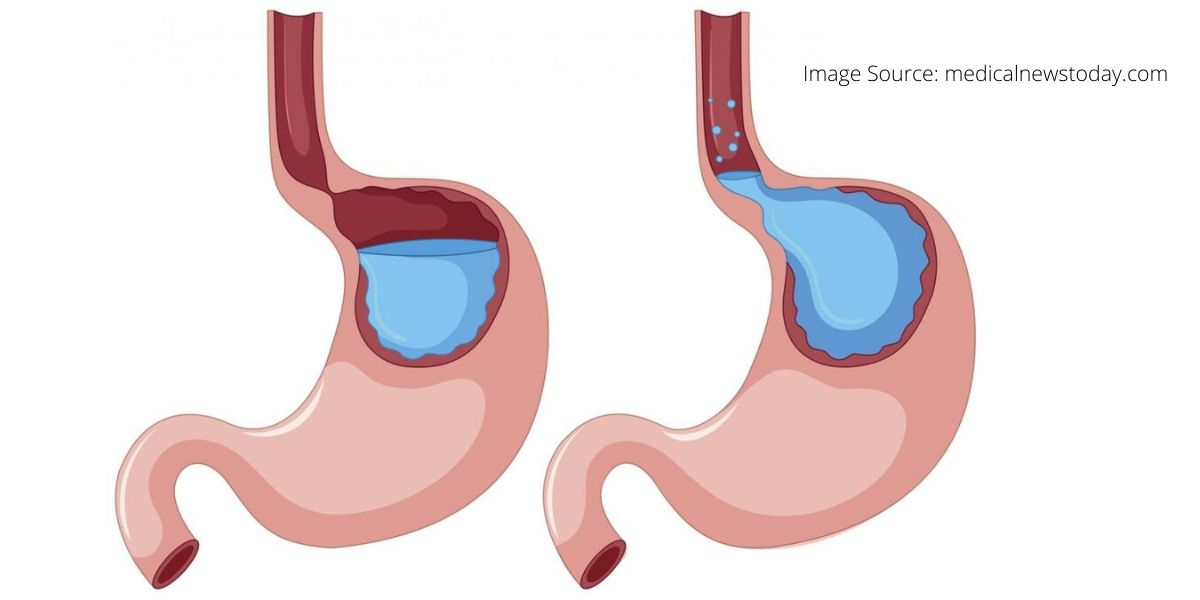


GERD is a digestive disorder, which affects the lower esophageal sphincter (LES). The symptoms of GERD can be mostly managed with lifestyle modifications and over-the-counter medications. However, some patients require surgery to ease their symptoms.
In normal digestion, the LES opens to allow foods to pass through the stomach and closes to prevent food and acidic stomach juices to flow back into the esophagus. Gastroesophageal reflux occurs when your LES is weak and allows your stomach’s contents to flow back into your esophagus.
Some doctors believe that hiatal hernia may weaken your LES and increase the risk for GERD. A hiatal hernia occurs when the upper part of your stomach in the abdominal cavity is pushed out through an opening in the diaphragm into your chest cavity. This hernia is common in people ages 50 and up. However, it can be congenital in children. Having a hiatal hernia may cause the stomach’s contents to easily flow back into the esophagus.
Some of the GERD causes include:
If you have GERD, you may experience symptoms such as:
Your doctor will recommend dietary and lifestyle changes to help treat GERD.
Along with these lifestyle modifications, your doctor may recommend over-the-counter medications to reduce heartburn, acid reflux, and other GERD symptoms.
You should visit your doctor if the above-mentioned remedies do not work. Your doctor will perform any of these procedures or tests to diagnose your GERD symptoms or complications:
This procedure is performed to diagnose chronic GERD. Your doctor will insert a thin tube equipped with an endoscope into your esophagus. They may recommend a biopsy if the test results are abnormal or detect any other complications.
This procedure is performed during the early stage of testing. It is a special X-ray, which clearly shows the duodenum, esophagus, and stomach.
This test is performed to measure the force and coordination exerted by your esophagus muscles and rhythmic muscle contractions in your esophagus.
This test is required to measure the acid levels inside your esophagus and monitor the symptoms during sleep, meals, and other activities.
Some people may require surgery to treat GERD if they have severe reflux or their body does not respond to medical treatment. A few surgical GERD treatments include:
It is a minimally invasive procedure. Your doctor wraps the top of your stomach around the LES, to tighten the muscle and prevent reflux.
This surgery is performed laparoscopically. Your doctor will tighten the barrier between the stomach and the esophagus to prevent reflux.
The LINX reflux device is laparoscopically placed around the lower end of the esophagus to strengthen a weak LES. The device is strong enough to keep the opening closed to refluxing acid and weak enough to allow food and liquid to pass through.
GERD doesn’t cause life-threatening complications. However, sometimes, it may result in serious complications, which include:
Related Article: What is the LINX Reflux Management System?
Timely diagnosis and treatment will save you from severe complications.
If you suspect that you have GERD, visit us right away for the best treatment. Dr. Madhu Prasad is the best surgeon in Anchorage. He has brought the LINX technology to Far North Surgical and Alaska for the first time.